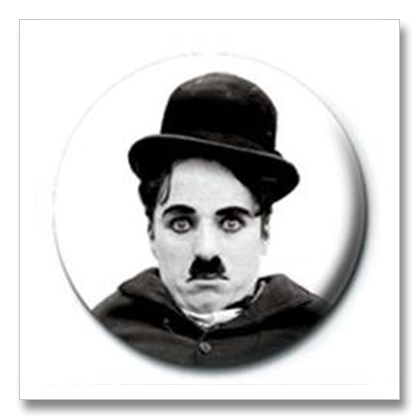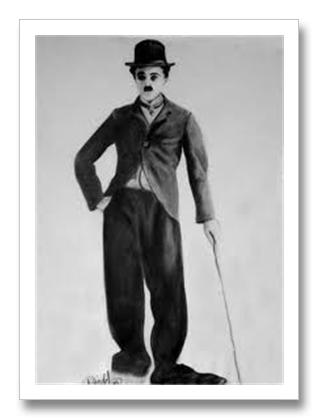Source: National Geographic
Happy Earth Day!!! Since 1970, April 22nd every year is celebrated as Earth Day
Following is the original article from NationalGeographic.com -
From not-so-humble beginnings in 1970, when 20 million participated across the U.S., Earth Day has grown into a global tradition, with a billion expected to take part in 2009. Find out when it is, how it started, how it's evolved, and what you can do.
When Is Earth Day?
Every day, the saying goes, is Earth Day. But it's popularly celebrated on April 22. Why?
One persistent rumor holds that April 22 was chosen because it's the birthday of Vladimir Lenin, the founder of the Soviet Union.
"Lenin's goal was to destroy private property and this goal is obviously shared by environmentalists," the Capitalism Magazine website noted in a 2004 article perpetuating the theory.
Kathleen Rogers, president of Washington, D.C.-based Earth Day Network, said in 2010 that the rumored communist connection is untrue.
Instead, April 22, 1970, was chosen for the first Earth Day in part because it fell on a Wednesday, the best part of the week to encourage a large turnout for the environmental rallies held across the country, Rogers said.
"It worked out perfectly, because everybody was at work and they all left," she said.
In fact, more than 20 million people across the U.S. are estimated to have participated in that first Earth Day.
(See pictures: "The First Earth Day—Bell-Bottoms and Gas Masks.")
Earth Day is now celebrated every year by more than a billion people in 180 nations around the world.
Mad People and a Frustrated Politician
Earth Day's history is rooted in 1960s activism. The environment was in visible ruins and people were mad, according to Rogers.
"It wasn't uncommon in some cities during rush hour to be standing on a street corner and not be able to see across the street" because of pollution, she said.
Despite the anger, green issues were absent from the U.S. political agenda, which frustrated U.S. Senator Gaylord Nelson of Wisconsin, whose campaigns for the environment through much of the 1960s had fallen flat.
First Earth Day "Took off Like Gangbusters"
In 1969 Nelson hit on the idea of an environmental protest modeled after anti-Vietnam War demonstrations called teach-ins.
"It took off like gangbusters. Telegrams, letters, and telephone inquiries poured in from all across the country," Nelson recounted in an essay shortly before he died in July 2005 at 89.
"The American people finally had a forum to express its concern about what was happening to the land, rivers, lakes, and air—and they did so with spectacular exuberance."
Nelson recruited activist Denis Hayes to organize the April 22, 1970, teach-in, which today is sometimes credited for launching the modern environmental movement.
By the end of 1970, the U.S. Environmental Protection Agency had been born, and efforts to improve air and water quality were gaining political traction.
"It was truly amazing what happened," Rogers said. "Blocks just tumbled."
Earth Day Evolves
Since Earth Day started, environmentalism has moved from a fringe issue to a mainstream concern, Amy Cassara told National Geographic News in 2010, when she was a senior associate at the World Resources Institute in Washington, D.C.
"As many as 80 percent of Americans describe themselves as environmentalists," Cassara said.
Environmental issues today, however, are less immediate than dirty air, toxic water, and a hole in the ozone layer, she added.
For example, the impacts of global climate change are largely abstract and difficult to explain "without coming off as a doomsday prognosticator," Cassara said.
"As we become more industrialized and our supply chains become less transparent, it can be more difficult to understand the environmental consequences of our actions," she noted.
Earth Day Network—which was founded by the original organizers of Earth Day—is pushing the Earth Day movement from single-day actions, such as park cleanups and tree-planting parties, to long-term commitments.
"Planting a tree, morally and poetically, requires taking care of it for a really long time, not just sticking it in the ground," Earth Day Network's Rogers said.
To help make the transition, the organization is aligned with a hundred thousand schools around the world, integrating projects with an environmental component into the year-round curriculum.
"They announce the results on Earth Day, so Earth Day becomes a moment in time," Rogers said.
Cassara, of the World Resources Institute, said her organization uses Earth Day to convene with leaders in the movement and assess progress in their campaigns.
"[Earth Day] doesn't raise awareness among the general public in the same way that it used to. But it still provides a benchmark for reflection among those of us in the environmental community," she said.
What to Do on Earth Day?
For those whose inner environmentalist speaks loudest on April 22, Earth Day Network's Rogers encourages them to make a public commitment to take an environmental action.
"We are headed for a billion commitments to do something green," Rogers said. "And that doesn't mean think about it—it means do something."
Commitment ideas promoted by the Earth Day Network include pledging to educate friends and family on global warming or buy green products such as energy-saving compact fluorescent light bulbs (CFLs).
In 2012, Earth Day Network is asking people around the world to take the Billion Acts of Green pledge. Already, 980,952,786 people have participated in a green act, such as planting a garden or participating in an Earth Day event, according to the Earth Day Network website.
The group's goal is to reach one billion actions in time for the United Nations Conference on Sustainable Development (Rio+20) in June 2012.
"We will present this accomplishment at Rio +20 and use it as a lever to address the UN's inaction and inspire leaders to reach a global agreement at the Rio+20 conference," according to the Earth Day Network website.
(See pictures of quirky Earth Day stunts.)
According to Rogers, everyone is part of this generation, which marks the transition from the industrial revolution to the green revolution.
"It is also about the green generation of energy and the generation of green jobs. ... The name [Green Generation], whenever I say it to people, they have their own idea of what it means, which is exactly what we want."
theFundooGeek recommended reading :
- Earth Day Facts: When It Is, How It Began, What to Do
- Earth Day - Wikipedia
- 2012 Resolution - Go Green
- Solutions To Stormwater Pollution
- Global Warming Special - Seeing The Forest Through The Cloud







 Newer Posts
Newer Posts
 Home
Home



